GOV’T VOWS TO INCREASE IN-PERSON CLASSES
입력 2021.01.27 (15:06)
수정 2021.01.27 (16:46)
읽어주기 기능은 크롬기반의
브라우저에서만 사용하실 수 있습니다.
[Anchor Lead]
The Ministry of Education is determined to have kindergarten and elementary school children attend schools on more days than last year, when classes were mostly provided online due to COVID-19. The ministry has also vowed to increase the number of teachers to keep classrooms less crowded and reduce the education gap.
[Pkg]
Last year, this elementary school in Seoul provided in-person classes at different time slots so that all students could have a chance to come to school. Only two-thirds of the students took classes at the same time, and lessons started at different times for different grades.
[Soundbite] CHOI HWON NARAE(ELEMENTARY SCHOOL TEACHER) : "Everyone was very satisfied. It was great to see our students in the classrooms every day. This is what a school classroom should look like."
In the first semester of 2020, schools in Seoul provided in-person classes on only 11.6 days on average. Loopholes in childcare and the widening education gap emerged as serious social issues.
[Soundbite] LIM SOO-HYUN(PROF., HANYANG UNIVERSITY) : "Students studied less due to distance learning. Their basic learning skills deteriorated. Parents were concerned about their children's social skills."
This year, education authorities are determined to have children attend school on more days by devising a flexible attendance plan. Priority will be given to children at kindergartens, elementary schools and special-purpose schools. The goal is to reduce the education gap and ensure that young children receive proper care.
[Soundbite] YOO EUN-HAE(MINISTER OF EDUCATION) : "In-person classes are more effective for children. We will closely cooperate with the local offices of education so that young children, elementary schoolers and students at special-purpose schools, who need more help from educational experts, can attend school first."
The most urgent task will be reducing crowded classrooms. Some two thousand teachers will be dispatched to more than 2200 elementary school classes with more than 30 students per class. The new school year will begin without delay in March as scheduled in the form of both online and in-person classes. Authorities will decide on the full re-opening of schools in accordance with the COVID-19 situation and vaccinations.
The Ministry of Education is determined to have kindergarten and elementary school children attend schools on more days than last year, when classes were mostly provided online due to COVID-19. The ministry has also vowed to increase the number of teachers to keep classrooms less crowded and reduce the education gap.
[Pkg]
Last year, this elementary school in Seoul provided in-person classes at different time slots so that all students could have a chance to come to school. Only two-thirds of the students took classes at the same time, and lessons started at different times for different grades.
[Soundbite] CHOI HWON NARAE(ELEMENTARY SCHOOL TEACHER) : "Everyone was very satisfied. It was great to see our students in the classrooms every day. This is what a school classroom should look like."
In the first semester of 2020, schools in Seoul provided in-person classes on only 11.6 days on average. Loopholes in childcare and the widening education gap emerged as serious social issues.
[Soundbite] LIM SOO-HYUN(PROF., HANYANG UNIVERSITY) : "Students studied less due to distance learning. Their basic learning skills deteriorated. Parents were concerned about their children's social skills."
This year, education authorities are determined to have children attend school on more days by devising a flexible attendance plan. Priority will be given to children at kindergartens, elementary schools and special-purpose schools. The goal is to reduce the education gap and ensure that young children receive proper care.
[Soundbite] YOO EUN-HAE(MINISTER OF EDUCATION) : "In-person classes are more effective for children. We will closely cooperate with the local offices of education so that young children, elementary schoolers and students at special-purpose schools, who need more help from educational experts, can attend school first."
The most urgent task will be reducing crowded classrooms. Some two thousand teachers will be dispatched to more than 2200 elementary school classes with more than 30 students per class. The new school year will begin without delay in March as scheduled in the form of both online and in-person classes. Authorities will decide on the full re-opening of schools in accordance with the COVID-19 situation and vaccinations.
■ 제보하기
▷ 카카오톡 : 'KBS제보' 검색, 채널 추가
▷ 전화 : 02-781-1234, 4444
▷ 이메일 : kbs1234@kbs.co.kr
▷ 유튜브, 네이버, 카카오에서도 KBS뉴스를 구독해주세요!
- GOV’T VOWS TO INCREASE IN-PERSON CLASSES
-
- 입력 2021-01-27 15:06:20
- 수정2021-01-27 16:46:48
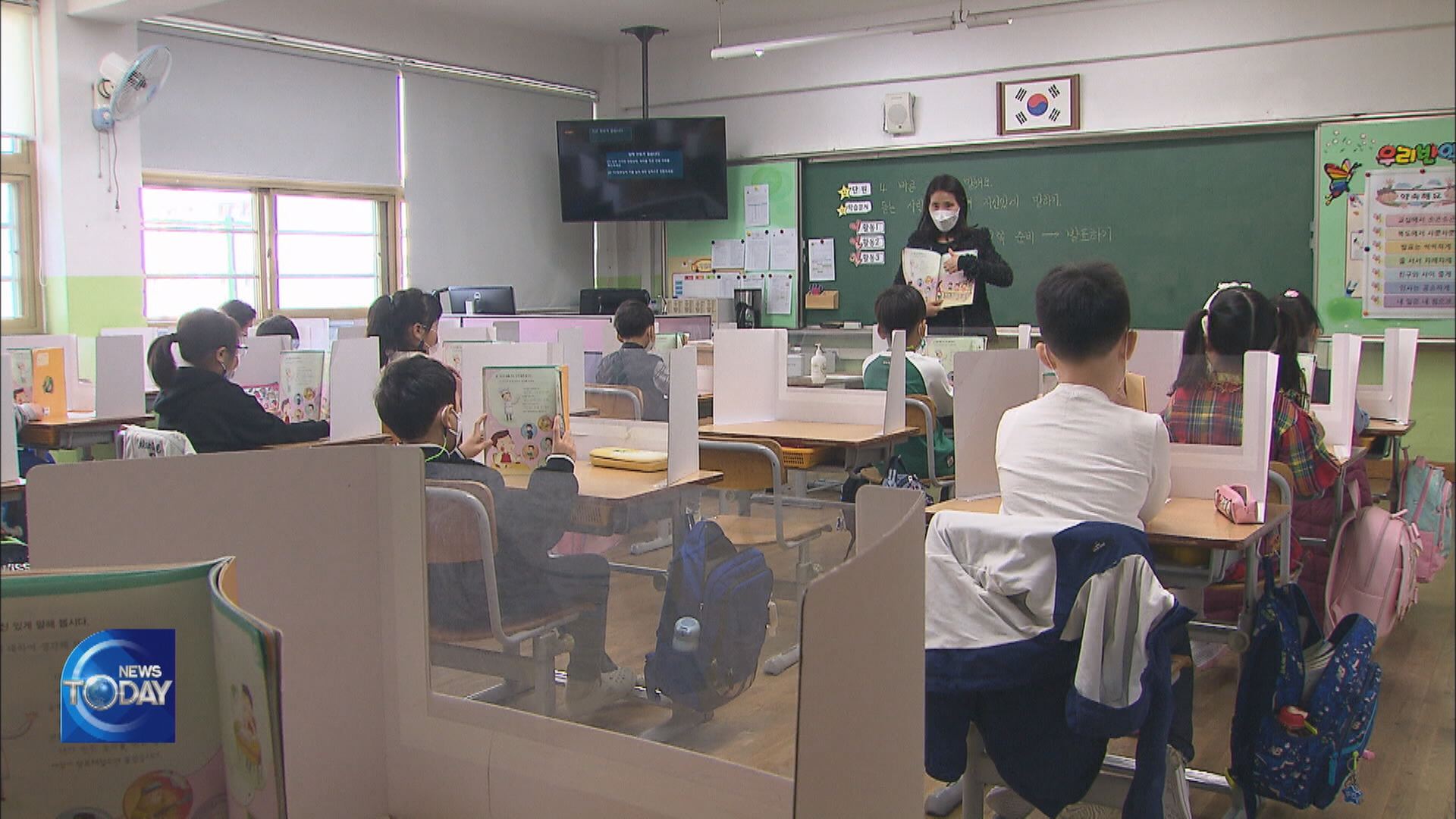
[Anchor Lead]
The Ministry of Education is determined to have kindergarten and elementary school children attend schools on more days than last year, when classes were mostly provided online due to COVID-19. The ministry has also vowed to increase the number of teachers to keep classrooms less crowded and reduce the education gap.
[Pkg]
Last year, this elementary school in Seoul provided in-person classes at different time slots so that all students could have a chance to come to school. Only two-thirds of the students took classes at the same time, and lessons started at different times for different grades.
[Soundbite] CHOI HWON NARAE(ELEMENTARY SCHOOL TEACHER) : "Everyone was very satisfied. It was great to see our students in the classrooms every day. This is what a school classroom should look like."
In the first semester of 2020, schools in Seoul provided in-person classes on only 11.6 days on average. Loopholes in childcare and the widening education gap emerged as serious social issues.
[Soundbite] LIM SOO-HYUN(PROF., HANYANG UNIVERSITY) : "Students studied less due to distance learning. Their basic learning skills deteriorated. Parents were concerned about their children's social skills."
This year, education authorities are determined to have children attend school on more days by devising a flexible attendance plan. Priority will be given to children at kindergartens, elementary schools and special-purpose schools. The goal is to reduce the education gap and ensure that young children receive proper care.
[Soundbite] YOO EUN-HAE(MINISTER OF EDUCATION) : "In-person classes are more effective for children. We will closely cooperate with the local offices of education so that young children, elementary schoolers and students at special-purpose schools, who need more help from educational experts, can attend school first."
The most urgent task will be reducing crowded classrooms. Some two thousand teachers will be dispatched to more than 2200 elementary school classes with more than 30 students per class. The new school year will begin without delay in March as scheduled in the form of both online and in-person classes. Authorities will decide on the full re-opening of schools in accordance with the COVID-19 situation and vaccinations.
The Ministry of Education is determined to have kindergarten and elementary school children attend schools on more days than last year, when classes were mostly provided online due to COVID-19. The ministry has also vowed to increase the number of teachers to keep classrooms less crowded and reduce the education gap.
[Pkg]
Last year, this elementary school in Seoul provided in-person classes at different time slots so that all students could have a chance to come to school. Only two-thirds of the students took classes at the same time, and lessons started at different times for different grades.
[Soundbite] CHOI HWON NARAE(ELEMENTARY SCHOOL TEACHER) : "Everyone was very satisfied. It was great to see our students in the classrooms every day. This is what a school classroom should look like."
In the first semester of 2020, schools in Seoul provided in-person classes on only 11.6 days on average. Loopholes in childcare and the widening education gap emerged as serious social issues.
[Soundbite] LIM SOO-HYUN(PROF., HANYANG UNIVERSITY) : "Students studied less due to distance learning. Their basic learning skills deteriorated. Parents were concerned about their children's social skills."
This year, education authorities are determined to have children attend school on more days by devising a flexible attendance plan. Priority will be given to children at kindergartens, elementary schools and special-purpose schools. The goal is to reduce the education gap and ensure that young children receive proper care.
[Soundbite] YOO EUN-HAE(MINISTER OF EDUCATION) : "In-person classes are more effective for children. We will closely cooperate with the local offices of education so that young children, elementary schoolers and students at special-purpose schools, who need more help from educational experts, can attend school first."
The most urgent task will be reducing crowded classrooms. Some two thousand teachers will be dispatched to more than 2200 elementary school classes with more than 30 students per class. The new school year will begin without delay in March as scheduled in the form of both online and in-person classes. Authorities will decide on the full re-opening of schools in accordance with the COVID-19 situation and vaccinations.
이 기사가 좋으셨다면
-
좋아요
0
-
응원해요
0
-
후속 원해요
0










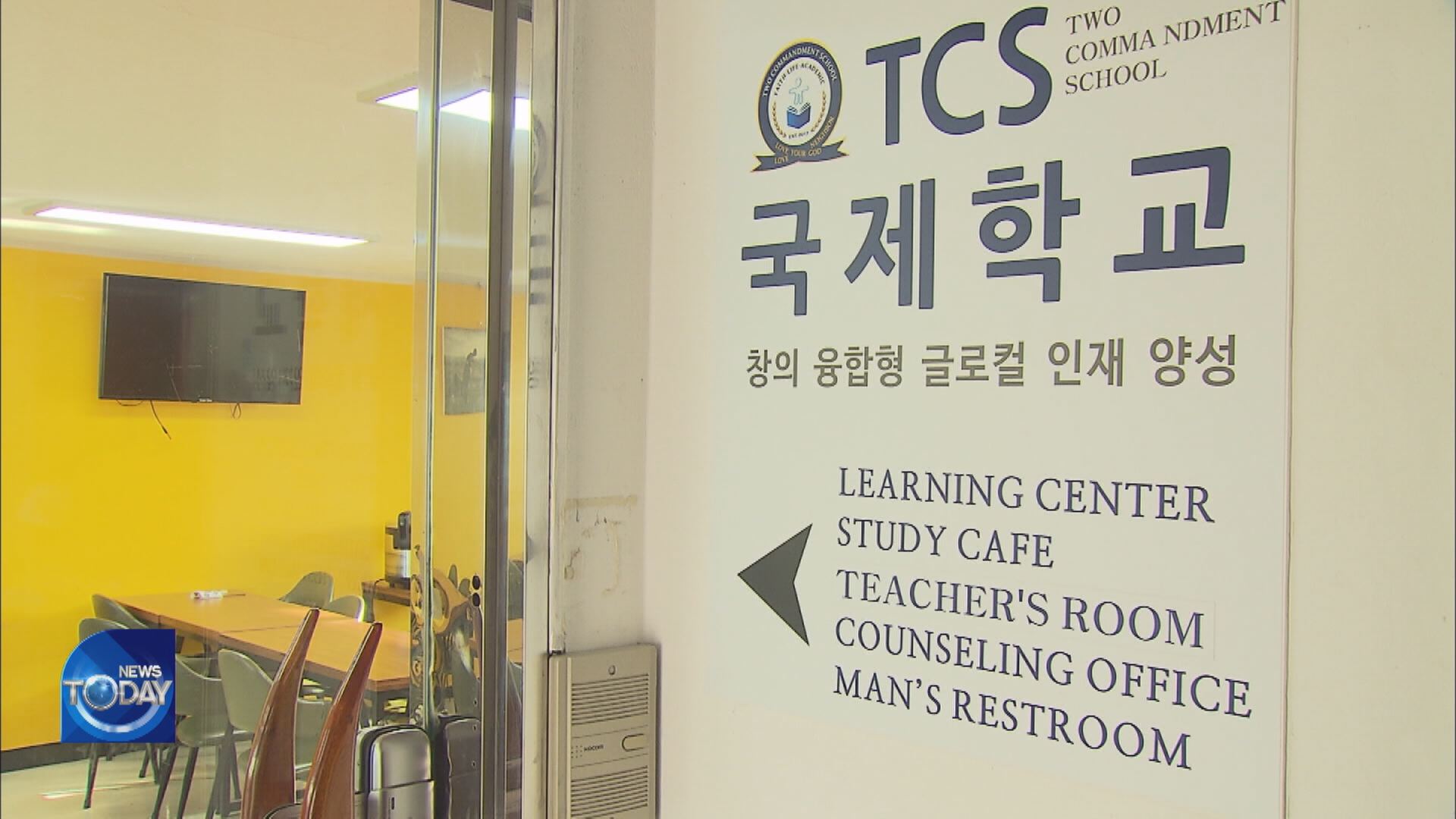
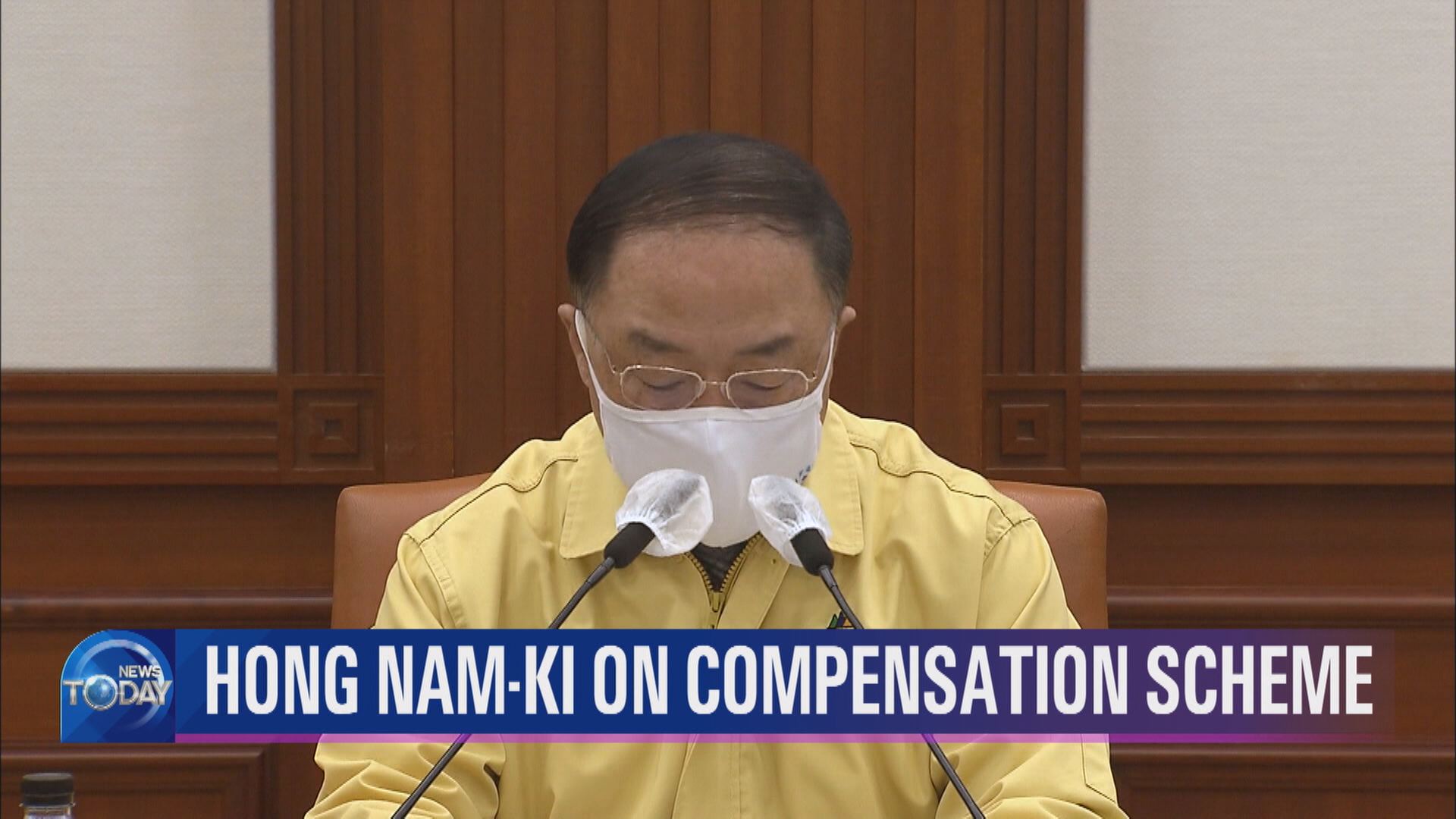
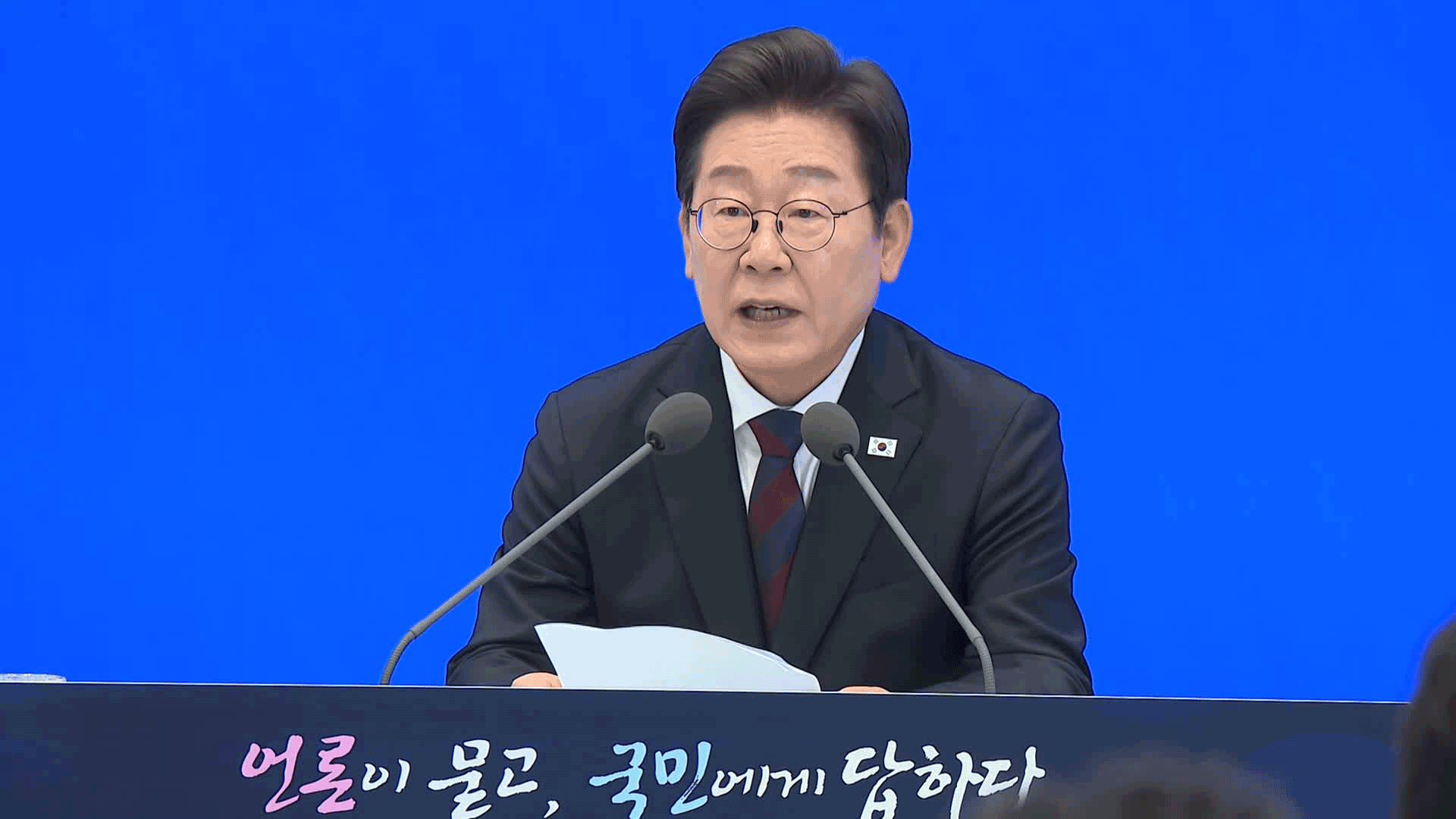
![[단독] 도이치 주포 “김건희, 내 덕에 떼돈 벌어…22억 원 주문”](/data/news/2025/07/03/20250703_KpuU43.png)
![[단독] “쪽지 얼핏 봤다, 안 받았다”더니…CCTV에선 문건 챙긴 이상민](/data/news/2025/07/03/20250703_Lv3LjI.png)
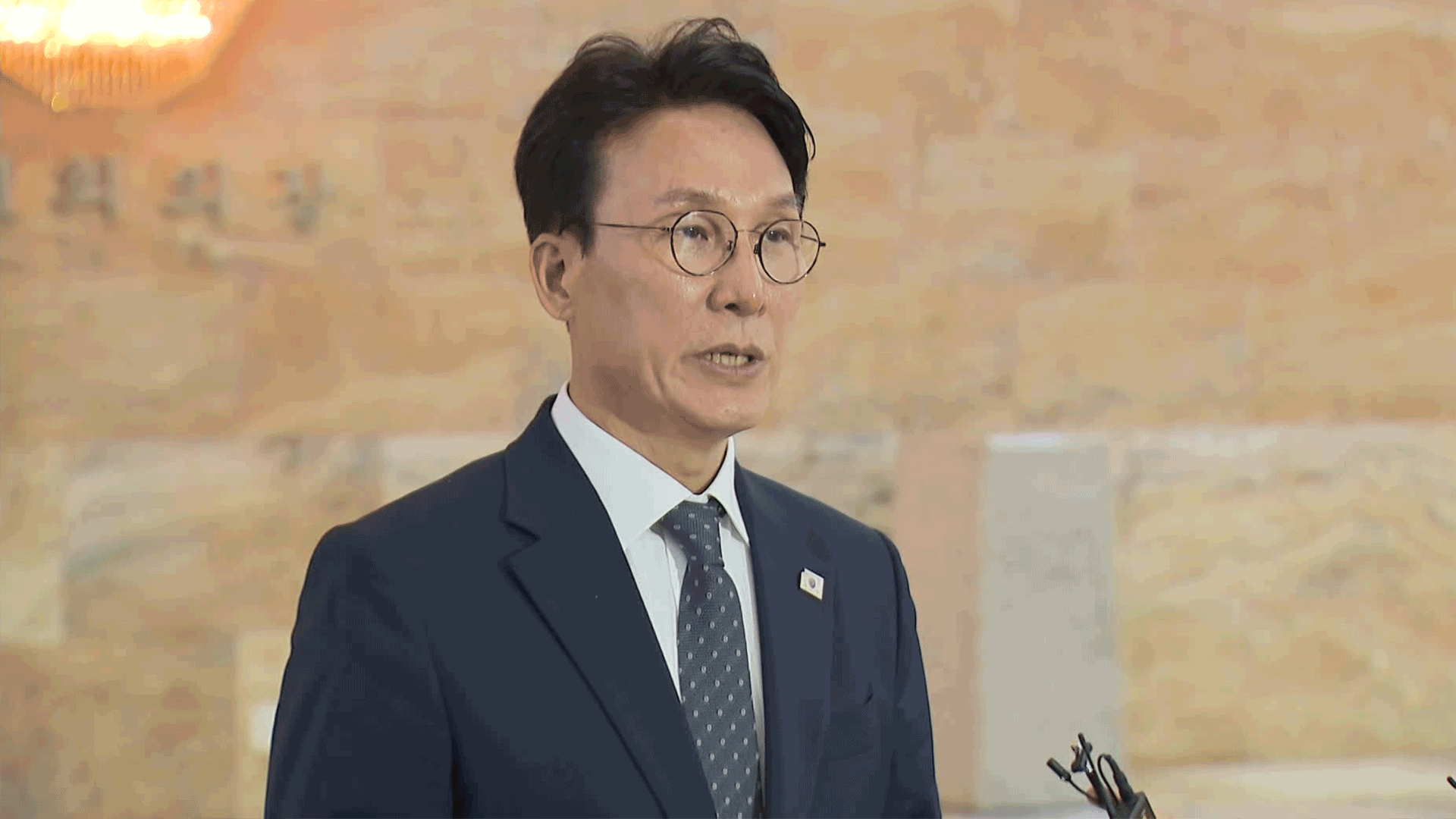

이 기사에 대한 의견을 남겨주세요.